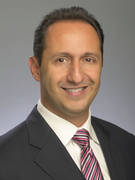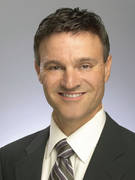By: John G. Wilcox, MD, FACOG The American Society for Reproductive Medicine has finally issued new guidelines for egg freezing and it is no longer considered experimental. Vitrification, a rapid freezing technique, has dramatically improved outcomes for frozen eggs and embryos. Survival rates are greater than 90% and pregnancy rates are comparable to fresh cycles. Since these procedures have not demonstrated any significant harm to the baby with over 900 births from frozen eggs, it is safe to say, many more women will be freezing their eggs for a variety of indications. That said, women should not wait too long...

Contemporary Outcome Summary of Assisted Reproductive Technologies
By Robert Boostanfar, MD, FACOG Board Certified, Reproductive Endocrinology and Infertility Introduction The last several decades have propelled assisted reproduction technologies (ART) into one of the most controversial and revolutionary medical therapies in the United States and around the world. The impact is so profound that today nearly 1% of babies born in the United States are conceived by in-vitro fertilization (IVF). The last few years have added focus and research on improving pregnancy outcome, and furthermore in establishing and defining health consequences from the utilization of these techniques. It has also allowed evaluation of the impact of health related...
De-Mystifying Fertility Medications
By David E. Tourgeman, MD, FACOG Board Certified, Reproductive Endocrinology and Infertility The ABC’s The ABC’s A fundamental step in understanding how fertility medications work, is to review some basic physiology (see figure). At the beginning of a menstrual cycle, Follicle Stimulating Hormone (FSH) is produced by a part of the brain called the pituitary gland. As the name implies, the primary function of FSH is to stimulate the growth of an ovarian follicle. In addition to containing an egg, the follicle has cells on its periphery which respond to FSH by producing estradiol (E2), a form of estrogen. E2...

Fertility Preservation Options: Egg Freezing
By Bradford Kolb, MD, FACOG Board Certified, Reproductive Endocrinology and Infertility Reproductive medicine has provided many wonderful options for women seeking to preserve their reproductive potential. From the advent of medications to stimulate egg production, to the development of in-vitro fertilization (IVF), many individuals have benefited from this technology. IVF is now commonplace and is no longer considered experimental or unusual. Fertility preservation (egg freezing) uses some of the same technologies perfected with IVF to allow women to delay childbearing. Egg freezing prevents the eggs from aging and therefore can be used to minimize the loss of fertility that occurs...

Non-surgical Alternatives for Men Desiring Children Following a Vasectomy
By Michael Feinman, MD, FACOG Board Certified, Reproductive Endocrinology and Infertility In the late 1980’s, Dr. Sherman Silber in St. Louis, proved that sperm obtained directly from the scrotum could be used to successfully fertilize eggs and achieve viable pregnancies. While this procedure was originally intended for men who are born with an obstruction in the genital tract (congenital absence of the vas deferens), it has become clear over the past decade that men with previous vasectomies can benefit from similar procedures as well. The development and maturation of sperm occurs in the testes. The testes also produce most of...
Ovarian Aging and Infertility
by Jane Frederick, MD, FACOG Board Certified, Reproductive Endocrinology and Infertility The decrease in female fecundity beginning after the age of 30 and exaggerated after 40 is a well documented finding. This age-related decline in fertility is the result of several factors that contribute to overall reproductive failure. Women over 35 require a longer period to achieve conception than younger women, and a higher percentage of older women will never achieve pregnancy. In addition, the rate of early pregnancy wastage increases substantially during the 30’s, and is over 50% after age 40. With the aging of the baby boom generation...
Preimplantation Genetic Diagnosis (PGD) and Preimplantation Genetic Screening (PGS)
By Barry Behr, PhD, HCLD Introduction Preimplantation genetic diagnosis (PGD) and screening (PGS) refer to the procedures involved in obtaining genetic makeup of the embryo(s) prior to their transfer into the uterus. Genetic errors arise from deletions or insertions of genetic material, abnormal numbers of whole chromosomes or genes, and even from misplacement of a single base in the DNA sequence. Genetic abnormalities can range from relatively harmless to severe: from vitamin deficiencies and food allergies to cancer, birth defects and infant mortality. In recent years, significant advances in technology have enabled researchers to trace many disorders and diseases to...

Preserving Reproductive Options in Oncology Patients
By Bradford Kolb, MD, FACOG Board Certified, Reproductive Endocrinology and Infertility Introduction Over the last several decades we have witnessed a significant increase in survival rates for oncology patients. Due to the use of combination chemotherapy and radiotherapy many young patients are now living long, healthy, productive lives. While combination regimens have been designed to avoid acute toxic effects, many have resulted in unanticipated gonadal toxicity (harm to sperm or eggs). As such, an increasing number of cancer survivors are now facing difficulties in having families as well as hormonal deficiencies. Preservation of Reproductive Options in Men Gonadotoxicity in males...

The Contemporary Fertility Evaluation
By Daniel Potter, MD, FACOG Board Certified, Reproductive Endocrinology and Infertility Introduction Infertility is a complex medical, emotional and social condition that afflicts more than four million reproductive-age couples in the United States. Successful fertility treatment includes not only achieving pregnancy, but also achieving it in the most efficient and cost effective manner possible. The frequently ignored psychological toll of repeated treatment failures must also be considered. To achieve success, it is imperative that a timely and complete evaluation of both partners be performed. As our knowledge of reproductive physiology has expanded, the fertility workup has evolved as well. In...
